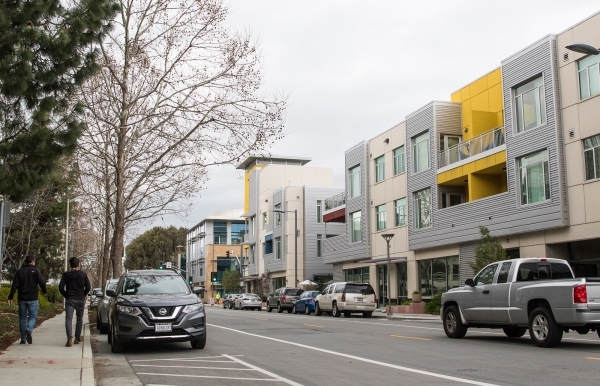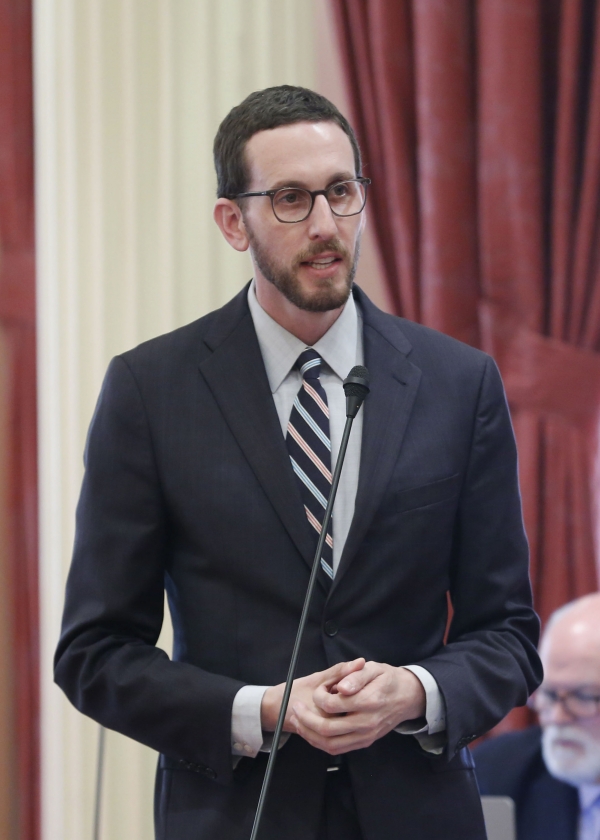Senate Bill 50, a contentious proposal to relax height and density restrictions for housing developments, suffered a serious blow Wednesday afternoon (Jan. 30) when it failed to get the votes it needed for Senate approval.
After a robust debate, the state Senate voted 18-15 late Wednesday afternoon to support the bill, an outcome that leaves the legislation hanging by a thread. To pass the Senate, the bill needs 21 votes.
The vote was immediately followed by a "motion of reconsideration," which allows the Senate to take another vote on the bill before the Jan. 31 deadline for its passage. Bill author, Sen. Scott Wiener, can bring the proposed legislation back to the floor as early as Thursday.
If the bill picks up three more votes, it would still need to win approval in the state Assembly before it heads to Gov. Gavin Newsom for his signature.
The Wednesday debate over SB 50 transcended the Senate's partisan divide, with numerous Republicans offering their support to Wiener, D-San Francisco, while various Democrats voted against the bill. Those who supported it underscored the severity of California's housing crisis and the role that zoning has played in preventing new housing.
"You can have the most streamlined process in the world. You can have enough funding for affordable housing, but if the zoning says you can't build something, that's the end of the process," Wiener said. "Restrictive zoning puts a hard cap — full stop — on our ability to get out of the crisis."
If approved, SB 50 would loosen height and density requirements for housing developments in transit-rich and jobs-rich areas, respectively. It would effectively allow housing developments of up to four stories (45 feet tall) within a half-mile of transit hubs and busy corridors, and eliminate limits on density for housing developments in "jobs rich" areas, including single-family neighborhoods.
And under amendments that Wiener made earlier this year, the bill would give the cities the option of adopting their own zone changes that would produce as much — or more — housing as they would under SB 50. Those that fail to do so within two years would be required to comply with the bill's provisions.
In introducing the legislation on Wednesday, Wiener emphasized that the intent of SB 50 is to address "real people and the pain that millions of Californians are suffering right now throughout the state." This, he said, includes children who go away to college and cannot go back to the community where they grew up, residents who are forced to live in cars and families who have to leave the state because of housing costs.
"When it comes to housing in California, we can no longer afford our broken status quo," Wiener said.
Some senators, including those from Los Angeles, lauded Wiener's efforts to address the housing crisis, but said they cannot support the bill because it does not do enough to address housing affordability or protect their communities from gentrification.
Bob Hertzberg, D-Los Angeles, criticized the bill for the provision that would create a two-year implementation delay, and argued that getting the bill "right" is just as urgent as passing it.
"If I'm a developer contemplating a project, this bill gives me a huge incentive not to build now but to sit on my hands for three years," Hertzberg said. "Why build two stories when you can build five stories later? And in LA, you cannot pick a worse time to inadvertently put sand in the gears."
Sen. Jerry Hill, D-San Mateo, voted against the bill. He did not speak during the Wednesday debate but said in a statement after the vote that he does not believe SB 50 addresses California's crucial need for affordable housing.
He also said he hopes the bill can "undergo a full legislative process this year and be positioned to obtain broader support from our colleagues and our community.
"We need clearer parameters on the housing creation required for local governments and our communities, and on the flexibility allowed to local governments to locate housing where it works best for our communities," Hill said in the statement.
"We also need a realistic view of the parking needs created by new housing. To require none ignores reality and worsens existing parking shortfalls in the very transit corridors where the legislation seeks to foster new housing."
"I could not in good conscience vote in favor of this bill as presented today," he added.




Comments